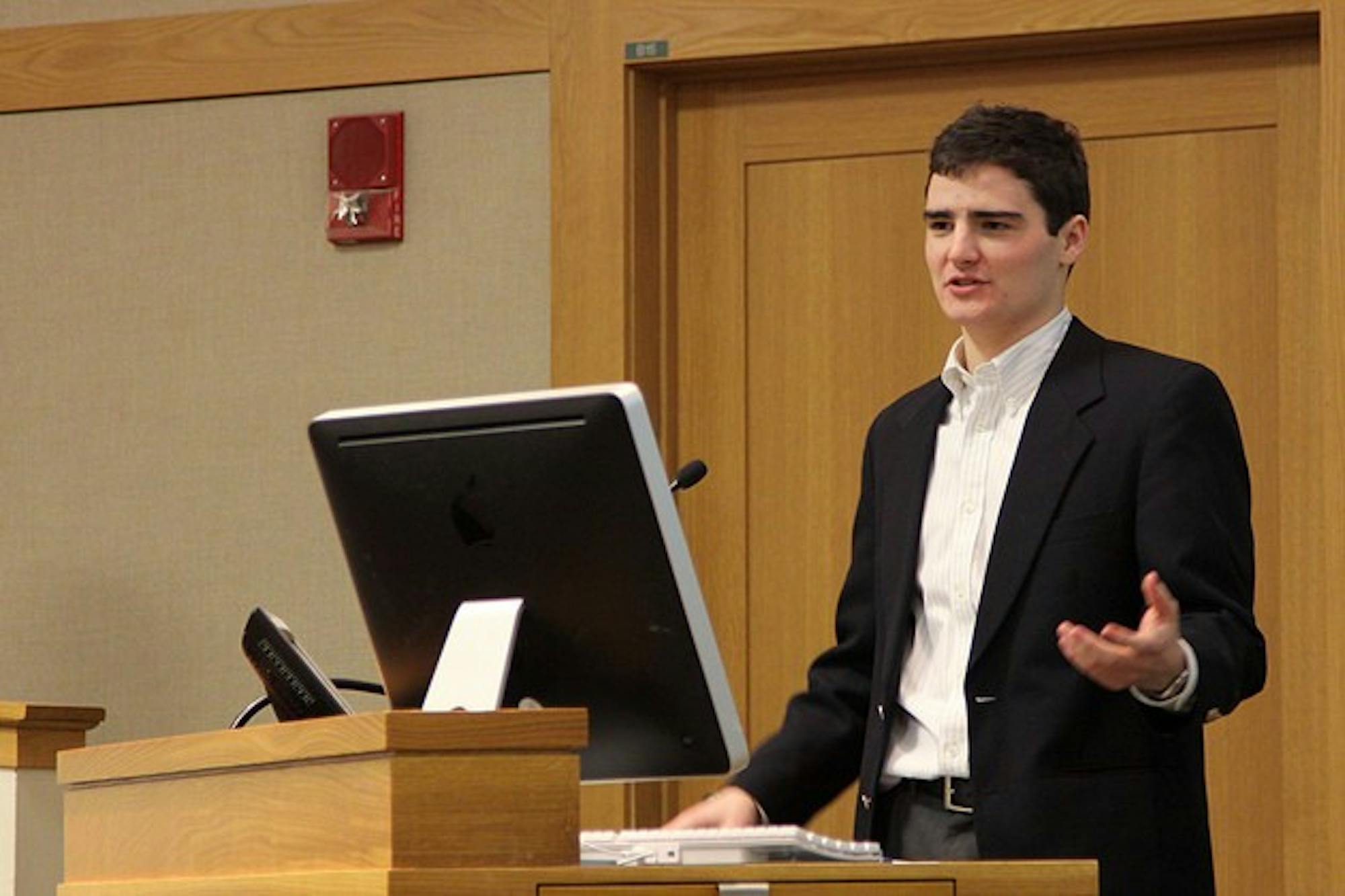In his thesis, Reid limited his data set to the 173 cases from the 1870s to the 1990s when world leaders died of accidental or natural causes because he wanted to pinpoint changes in policies made by replacement leaders. Changes made by new leaders following assassinations or coups, he said, could be sparked by greater political forces, rather than an individual's personal motives.
After comparing changes in countries' stances before and after these leaders' deaths, Reid said that he found no significant differences in policy from one leader to the next.
"It seems almost impossible that one leader could outweigh all of the forces against them," he said.
Reid focused his analysis of foreign policy change on wars, which he called "militarized interstate disputes."
Historians' heavy emphasis on leaders like Adolf Hitler, who were "so unique and different" that they had dramatic effects on policy, ignores the fact that international political systems have more of an effect on events than individuals, Reid said.
"It's like examining the role of batters in Major League baseball by looking at Mark McGwire, Sammy Sosa and Barry Bonds," Reid said.
Historians are often to blame for their "leader mania," Reid said -- a tendency to overemphasize the role that state leaders play in international affairs by glorifying exceptional leaders like Mao Zedong and Winston Churchill.
"No one writes biographies on Millard Fillmore," he added.
If governments hold to this leader-centric view of foreign affairs, they may enact policies aimed at a nation's head of state, rather than the nation itself, Reid warned, pointing to the United States's anti-Castro Cuba policy and concern over current North Korean dictator Kim Jong Il's successor.
Citing the 2000 U.S. election results, Byman argued that a difference in leadership could have resulted in a very different political trajectory. If Gore had been elected, the United States may not have entered the war in Iraq, he said.
"The international system and domestic politics don't explain all of the puzzle, or even most of it," Byman said.
Audience member Kelly Erickson '11 said she thought that Reid and Byman both raised valid arguments, but that the data set should have been widened to include possible exceptions to the argument.
"I took away that, in general, the 'normal' leader does not have much importance," she said. "It's leaders like Stalin and Hitler -- the exceptional leaders -- that have, in many respects, caused the big events. The exceptional ones ... need to be fitted into the formula as well."
Government professor Benjamin Valentino, who moderated the event, summarized both sides of the argument to an audience of approximately 40 students in Filene auditorium.
"Leaders can matter, but they usually don't," he said.
Reid majored in government at Dartmouth and is a former member of The Dartmouth Senior Staff. He is currently an assistant editor at Foreign Affairs magazine.
The Chase Senior Thesis Prize is awarded each year to the Dartmouth student with the best senior thesis addressing issues of war and peace, according to Dickey Center director Kenneth Yalowitz.
The winner is invited back to Dartmouth to participate in a thesis-related campus event and awarded $1,500, which Reid said he used "to support a starving writer in New York."




